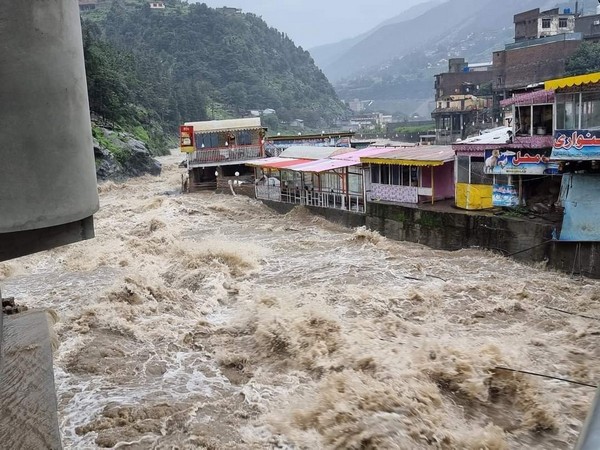Due to a lack of timely medical assistance and relief supplies, a mother and her unborn child died in the Khair district of flood-hit Pakistan on Saturday.
The incident took place in Akari village of Khairpur district as the woman was not transported to the hospital due to floodwaters on roads, according to ARY News.
Recently, the United Nations Population Fund (UNFPA) also raised concerns for providing healthcare facilities to almost 650,000 pregnant women in flood-affected areas in Pakistan.
“Almost 650,000 pregnant women in the flood-affected areas require maternal health services to ensure a safe pregnancy and childbirth,” UNFPA said in an official statement.
“Up to 73,000 women expected to deliver next month will need skilled birth attendants, newborn care, and support,” the UN agency added, reported ARY News.
Amid devastating floods in Pakistan, women and their needs have taken a backseat as many of them are forced to live under an open sky and feminine hygiene products and toilets are not a part of the conversation about relief items.
Menstruating and pregnant women are in a miserable state as they have no access to menstrual products or any place to defecate.
The flash floods have badly impacted 80 districts of the country and the death toll from floods in Pakistan has reached near 1,200 as 19 more people lost their lives in the last 24 hours.
According to medical experts, the most common disease amongst the women flood survivors is Urinary tract infection followed by other infections.
Since mid-June, 937 people have died from severe rain and flooding across the South Asian country, according to the country’s National Disaster Management Authority (NDMA).
The southern province of Sindh, which has been badly hit by the flooding, has asked for 1 million tents, while nearby Balochistan province has requested 100,000 tents. Since mid-June, when the monsoon began, more than 3,000 kilometres (1,864 miles) of road, 130 bridges and 495,000 homes have been damaged, according to NDMA’s last situation report.
As districts in Pakistan continue to be affected by massive monsoon rainfall and unprecedented levels of flooding, the World Health Organization (WHO) has warned of significant public health threats facing affected populations, including the risk of further spread of water and vector-borne diseases such as malaria and dengue fever.
Around 888 health facilities have been damaged in the country, of which 180 are completely damaged, leaving millions of people lacking access to health care and medical treatment, as reported in many affected districts. (ANI)
